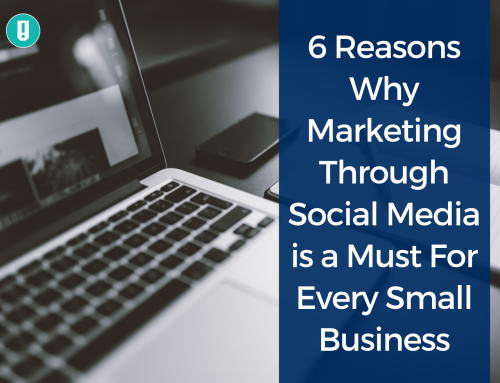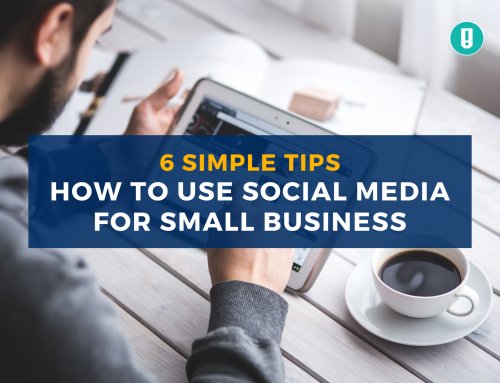Small businesses have to face a new reality: the digital world may provide the only support during uncertain times. In 2020, many small businesses faced the risk of bankruptcy and closure due to the pandemic. Despite the promise of economic resurgence in 2021, more than 9 million small businesses in the United States alone feared they won’t make it through the crisis.
More and more small businesses have come to realize that improving their online presence and search engine visibility is the key to retaining a robust customer base. Some have even branched out to connect their search engine optimization with social media.
However, it’s easy to get distracted by the numerous strategies. But you should always focus on improving your website’s search rankings.
Below are some compelling reasons to focus your efforts in improving search rankings and three effective methods you can use to achieve such a goal.
Why You Need to Improve Your Search Rankings
Many digital marketing agencies may try to dazzle you with different metrics, but expert providers of SEO services for small businesses understand that improving search rankings is the most important goal of all. Without enhancing your search rankings, all other metrics may be impossible to achieve.
Here are some of the best reasons for pursuing a spot on the first results page for your business website.
- People look for locations
According to the experts at Google, as many as one in three of all Google searches from mobile phones are related to location. This is because people actively use search engines to look for locations they wish to visit. If your business website appears first on such results, that means more people will be able to find your physical location. - Users search for businesses
The internet is useful for looking up many things and users have turned to it to find local businesses. According to a survey of consumers, an overwhelming 90 percent of respondents use search engines to locate a local business. If your business is struggling to remain afloat or need substantial revenue, appearing in these searches ahead of your competitors is essential. - First term gets the most clicks
People and users look for swift results from their search engines. Most users click the first result on the first page. Experts calculate that whichever website occupies the first spot can have an average click-through rate of over 28 percent. This means that if your website can take that spot, you have a higher chance of getting new customers. - First pages get almost all views
Search engine engines rank their results based on multiple factors, with those scoring the highest appearing closer to the top. But this means that users barely pay attention to the results that appear on the following pages. As many as 93 percent of users never scroll past the first page of search results. This makes it vitally important that you appear in the first page or else have to fight for the few users who bother to check the second page.
Improving Your Search Rankings
So how does your business make it onto the first page of the SERP?
1. Create Compelling Content
Content is the key to winning over customers and search engine algorithms alike. Compelling content takes many forms. It can be an appealing metadata and title, both of which are factored in algorithms when they crawl your website. It also includes regularly updated pieces, like educational videos and expertly written blog posts.
Of course, compelling content is also essential for retaining the interest of your readers and customers. The more compelling your content, the more likely people are to share it to their friends and social networks. This ensures that your website gets good traction and visibility from multiple angles.
How do you produce content that consistently engages?
- Routinely inspect your entire website for outdated or wrong content. This could be information that’s no longer relevant, data that has been overturned by new evidence or simply articles no one cares about anymore. Articles with erroneous information can affect your credibility and outdated data may lead to lost traffic, which could also mean lost revenue. Once you’ve discovered these old blog posts or copies, schedule content refreshing and republishing. This strategy will not only save you time in creating content, but it could also help you generate new traffic.
- Don’t write solely for algorithms. Instead, focus on writing content that your customers and readers will genuinely care about. Doing so can draw more organic traffic than creating for search engines. Look up what sort of information your customers and potential customers want to know. Providing them with this information is key to drawing in more traffic, backlinks and the like.
- Optimize keywords connected to your website. Everything, from the title of the website, to its metadata and even the alt-text for your images are evaluated by search engines when determining rankings. Make sure that they correctly incorporate keywords, search phrases and important information.
- Don’t ramble, but don’t be too brief either. Both readers and search engines prefer longer content rather than short articles that don’t offer any substantial information. When writing articles for your website, make sure they provide in-depth knowledge; edit them to ensure they don’t contain unnecessary words and erroneous information.
2. Optimize for Mobile
As of 2021, the majority of internet users are accessing it through their mobile devices, such as smartphones and tablets. According to expert sources, as many as 55 percent of all global internet traffic originates from mobile devices. This makes it a necessity that your business website is not just accessible but optimized for mobile traffic.
Although your website may appear on a phone’s web browser, it can be distorted. Or several features may be rendered unusable by the shift. Or it may not appear at all. Such problems will undoubtedly drive away customers.
Here are ways to optimize your site for mobile use.
- Ensure your website changes ratio and resolution to fit into mobile devices. Smartphones have significantly smaller screens than other devices and your site may not translate properly if you don’t alter it. You should also optimize your site for all sorts of mobile devices, including tablets, because they have different screen sizes and capabilities.
- Choose your fonts for readability and appeal. You must not forget that mobile devices have smaller screens or they may not access to the same font types as larger computers. If you don’t, visitors to your site may find it difficult to read your content. This will put-off many visitors and render your website unusable.
- Test all the buttons and clickable features of your website on a mobile browser. If you want to be absolutely sure your site works properly, invest a lot of time in inspecting each of its clickable features. Are the buttons big enough on a phone screen that users can press them easily? Are they responsive at all? Catching such errors will be important before launching a mobile version of your site.
- Phones have different internet capabilities than a desktop setup. They may not be able to handle huge, intricate websites as quickly as their desktop counterparts. If you don’t optimize your site for speed, it may take a long time for pages to load, causing users to go to your business competitors instead.
3. Reach Out to Local Directories and Sites
Search engines connect with local business directories and similar sites to pinpoint shops and other commercial establishments accurately. It is crucial to enlist your business in these online directories. Users value the reviews left by other customers on these sites and can lead to more revenue.
Furthermore, search engines connect the address you input in such directories with online searches, allowing customers to find your business easily.
- Register your business with sites like Yelp and Google My Business. Make sure you complete the registration and verification processes of these directories because your business won’t appear in their listings until your do.
- Doublecheck that all details of your business address are correct when you sign up for such a site. This is crucial for connecting your online site to a searchable physical location.
- Encourage customers to leave reviews on your directory pages. Users frequently trust the reviews left by other users on business sites. However, your satisfied customers may forget to indicate how pleased they were with your company. Ask them to write about their positive experience with your product or service. Reach out in a friendly manner while they’re online, and if at all doable, offer an incentive, from a charitable donation on their behalf to a discount.
With millions of small businesses clamoring for the attention of consumers, you need to be smart about your digital marketing strategy – perhaps hiring an SEO company to do that for you is a start. Improving your search ranking position is the best possible way for your small company to succeed in the uncertain times ahead.






Leave A Comment